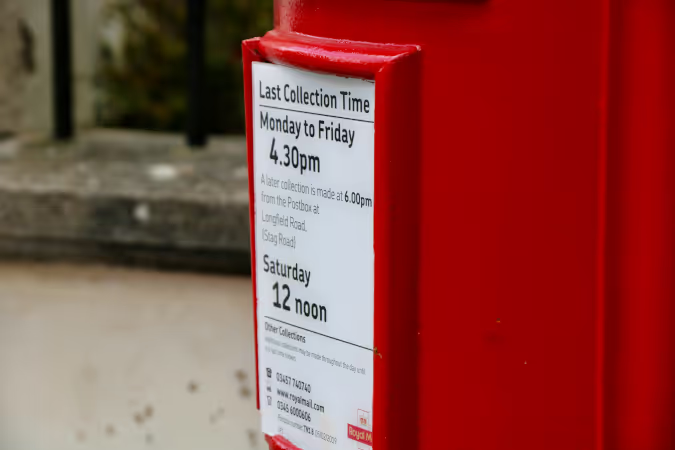




It’s a common occurrence in rented property – mail still arriving for tenants who have long since moved out. Perhaps the previous tenants failed to have their mail re-directed and it keeps coming in.
Some of this mail is probably harmless junk, but some letters are more important: from banks, utility companies, HMRC, medical appointments and even debt collectors. Understandably, the latter can cause alarm for new tenants. They may worry that someone else’s financial problems could rub off on them.
The reality is more straightforward. Here’s what landlords and tenants need to know.
One of the biggest misconceptions is that unpaid bills or debt collection letters linked to a property will damage the credit rating of whoever lives there next. In reality, this is not the case.
Credit histories at the major credit reference agencies are attached to individuals, not to properties. A new tenant’s credit record will only reflect their own borrowing and payment history, not that of the previous occupant. The only potential link is if a new tenant has some form of joint financial account with the old tenant – otherwise, there is no cross-contamination.
All the three main UK credit reference agencies (Experian, Equifax, TransUnion) confirm that addresses alone are not used to assess credit scores.
No. Under the Postal Services Act 2000, s.84 – interference with mail, it is an offence to intentionally open postage addressed to someone else without their consent. Even if the intention is to identify the sender, landlords and tenants must resist the temptation to open letters not in their name.
The correct approach for this is to strike out the property address and mark the envelope “Not at this address” or “Return to sender” and put it back in the post box.
Always advise outgoing tenants they should set up a Royal Mail redirection before they leave. It’s relatively inexpensive and ensures important letters don’t go astray. There’s always a risk of identity fraud when important letters arrive with personal details included, for example letters from banks and HMRC.
Landlords should be aware of this when they let out properties they have lived in themselves. There have been cases of identity theft in this situation and attempts to extract money by mortgaging or selling the rental property without the landlord’s knowledge.
Landlords must verify tenant identities and should use services like The Land Registry’s Property Alert to monitor their property for suspicious activity, which can be a sign of fraud, such as identity theft to sell the property without the owner's knowledge.
Landlords and tenants should mark letters clearly “Not at this address” and repost.
Landlords should not leave piles of old mail for the new tenants to deal with. They should take the mail away when there’s been an extended void period and deal with it appropriately.
If there are debt collection letters arriving, landlords and/or tenants should contact the debt collection firm to confirm the debtor has moved on. They should provide them with the new tenancy start date or a landlord confirmation if requested. It’s a good idea to keep a record in case collectors continue to make contact – the debt collection firms can be very persistent.
Debt collectors will sometimes visit properties in search of former tenants. It can be intimidating for the new tenants, but they should be reassured that they are not liable for another person’s debts. Debt collectors cannot seize goods without a court order and a simple explanation “that person no longer lives here” is usually enough. If the problem persists, landlords should be willing to step in to confirm the change of tenancy.
They should remind outgoing tenants at check-out to notify banks, HMRC, utilities, and to set up mail redirection.
They should also explain to new tenants that some post may arrive addressed to the previous occupier/s which should be appropriately marketed and reposted. An explanation should be given reassuring the new tenants that whatever mail arrived, financial or otherwise, it will not result in any financial risk to them simply because they now live in the property and share the same address.
Landlords or their agents should offer support to tenants if they are being harassed by persistent debt collectors, the landlord or agent is in a better position to help resolve the issue.
Previous tenants’ mail is a nuisance, but nothing more than that. However, this should not be ignored, and the mail must not be destroyed. It should be marked appropriately and reposted. Landlords should always reassure new tenants that someone else’s financial baggage won’t in any way become attached to them in their new home.
The golden rules are: don’t open other people’s letters, re-address them to the sender if the address is known – no postage charge applies – or simply mark them, “Not at this address” or “Return to sender” and, if needed, inform creditors or debt collectors that the addressee has moved on. With a bit of common sense and the landlord’s or agent’s support, the issue for the tenant can be dealt with swiftly and legally.
[Main image credit: Ethan Wilkinson]
Tags:
Comments